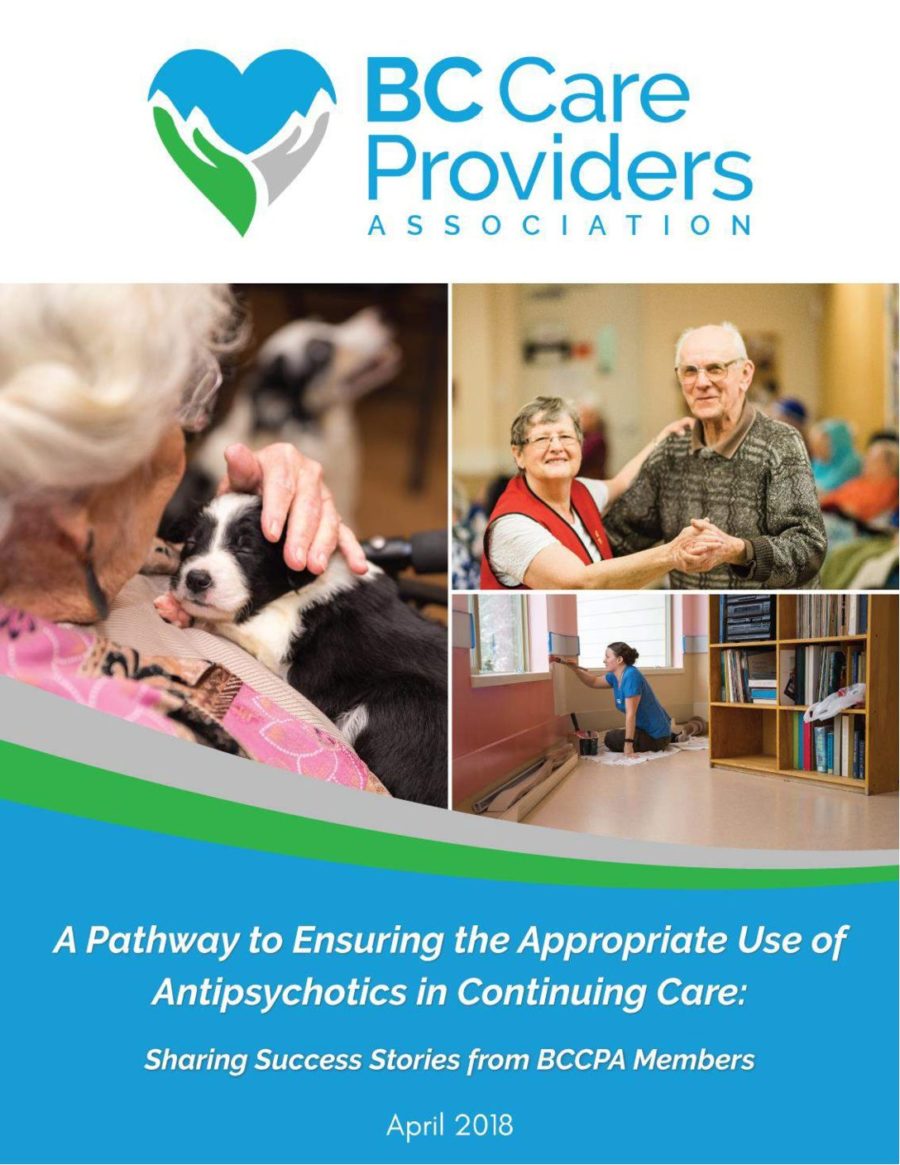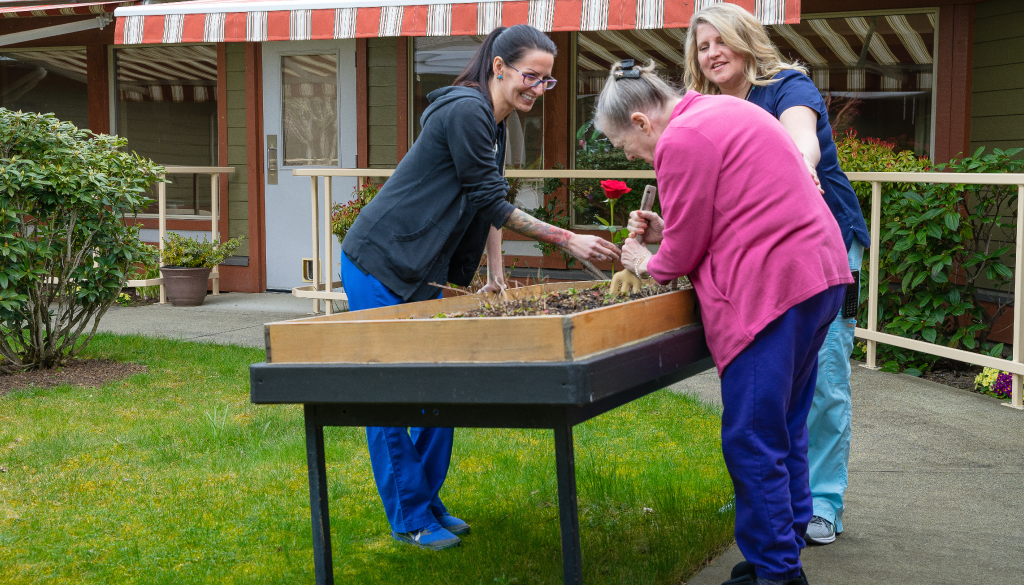What are the next steps to build upon this success?
British Columbia’s continuing care sector is paying more attention to the inappropriate use of antipsychotics than ever before, and progress is being made. In fact, according to the Office of the Seniors Advocate, publicly subsidized care homes have seen a 31.2% drop in inappropriate antipsychotic use over 5 years. While there is still some way to go (B.C.’s average of 25.3% exceeds the national average of 21.2%) this is a success which should be celebrated. Further, we should be looking at the factors driving the sharp decline which has been intentionally worked toward over the last five years.

Over the last few years BCCPA has led discussion on this important issue. For example, this Spring BCCPA released A Pathway to Ensuring the Appropriate Use of Antipsychotics in Continuing Care, which was preceded by as the BCCPA backgrounder Reducing Polypharmacy in B.C.’s Continuing Care Sector. The Association has also partnered with organizations like the BC Patient Safety & Quality Council who are responsible for the CLeAR program, which supports long-term care homes in BC to provide person-centered care for residents with the behavioural and psychological symptoms of dementia (BPSD), ultimately in an effort to move away from the inappropriate use of antipsychotic medications.
Why is this something that matters for B.C.’s continuing care sector? Antipsychotic medications, which were originally developed for use by people living with schizophrenia or psychosis, have often been prescribed to manage the behavioural and psychological symptoms of dementia (BPSD). These behaviours and symptoms include responsive behaviours, agitation, restlessness and anxiety, and have a significant impact on the quality of life for people with dementia and the people who care for them.
There are situations where antipsychotic medications may be appropriately considered, where symptoms are severe and the risk of harm to oneself or others is high, for example. However, antipsychotics should only be used as a last resort as there are serious adverse events associated with their use including an increased risk of falls, infections, stroke and death in people with dementia. In addition, clinical trials have illustrated that the benefits of antipsychotic medications are small and not always effective.
Both research and anecdotal information tells is that there is a plethora of factors which can lead to the inappropriate use of antipsychotic medications including organizational culture and physician prescribing practices. However, person-centred care, which may include approaches such as music therapy, pet therapy, exercise programs and multi-sensory stimulation therapy, can be effective at reducing rates.
BCCPA has highlighted some of our member’s success stories through A Pathway to Ensuring the Appropriate Use of Antipsychotics in Continuing Care, as we strongly believe that there are numerous best practices locally, nationally and internationally, which can lead to improvements in prescribing practices and the culture which surround them.
The OSA’s report also looked at the number of home care clients who were prescribed an antipsychotic (the report did not discuss the percentage of clients who had a supporting diagnosis) and determined that 14.3% of B.C.’s home care clients are prescribed an antipsychotic, which is higher that the Canadian average and has remained relatively static over the last 5 years. This indicates that learnings in long-term care may be effectively translated to prescribing practices in the community. The OSA’s report did not review prescribing practices in acute care for seniors with dementia, which research demonstrates are high and may be the source of many inappropriately prescribed antipsychotic medications.
BCCPA firmly believes that through consistent, intentional work, appropriate funding structures and partnerships, the continuing care sector can progress to a place where no senior is inappropriately prescribed antipsychotic medications. Over the next few weeks BCCPA will be profiling some of the success stories from across the sector.





